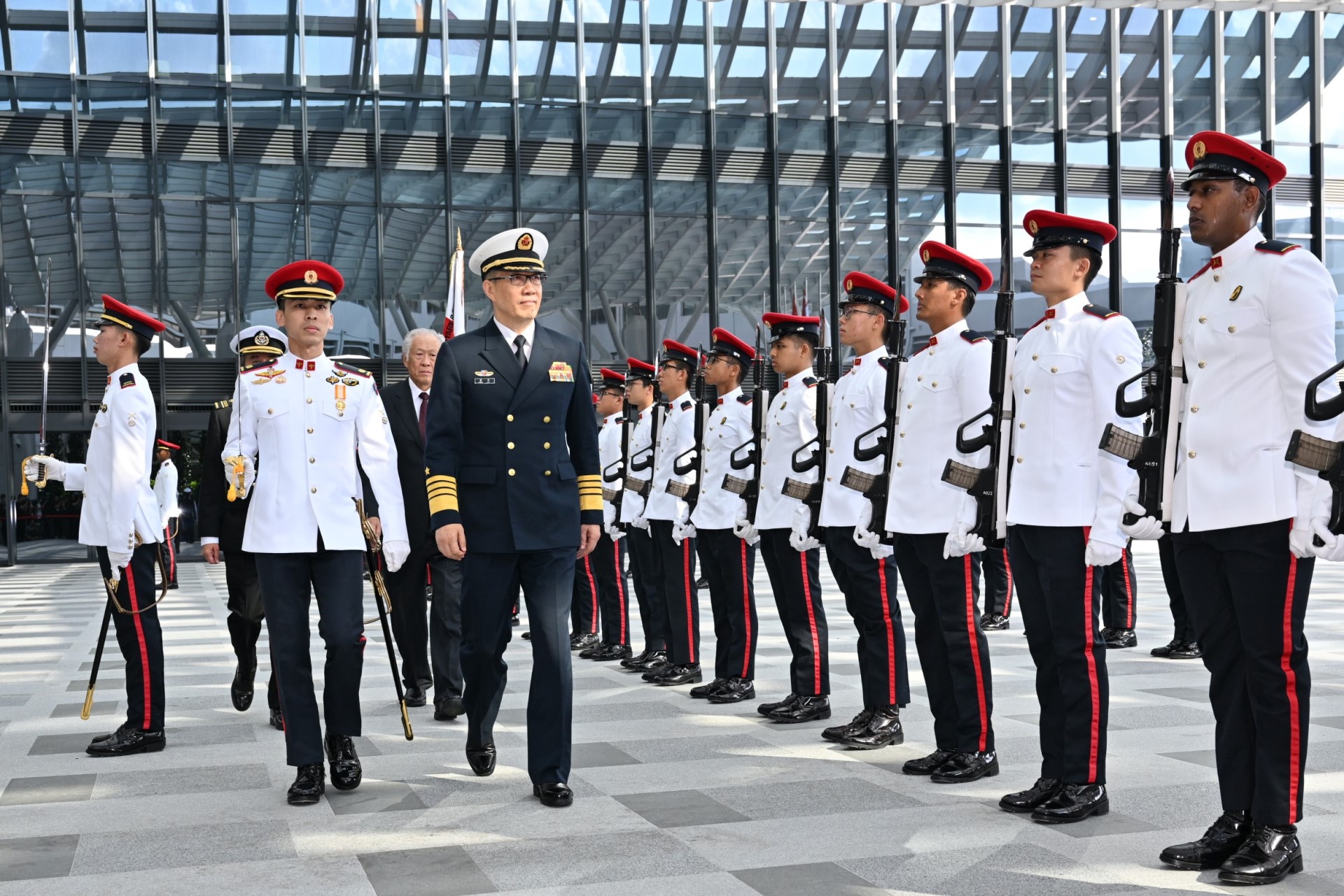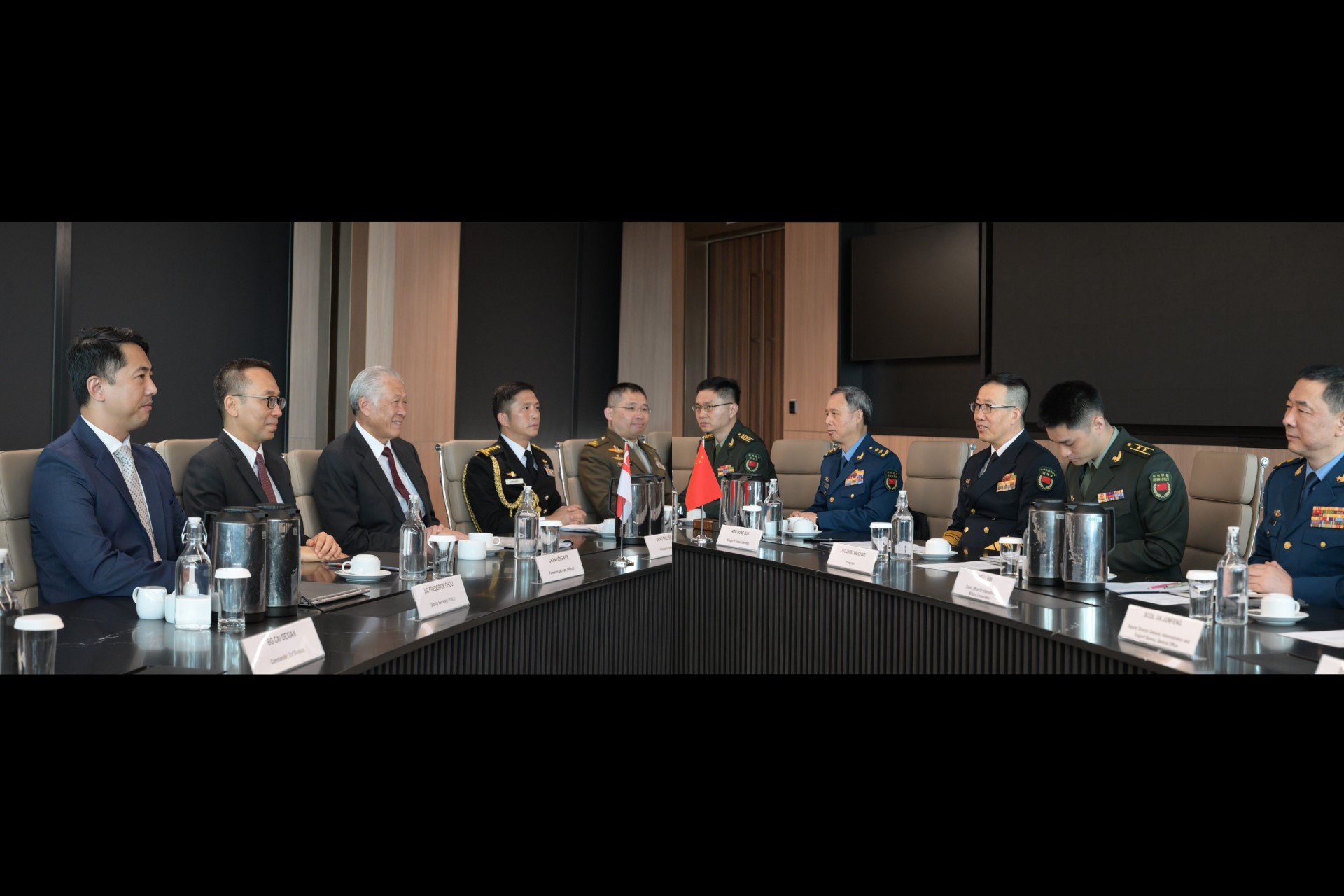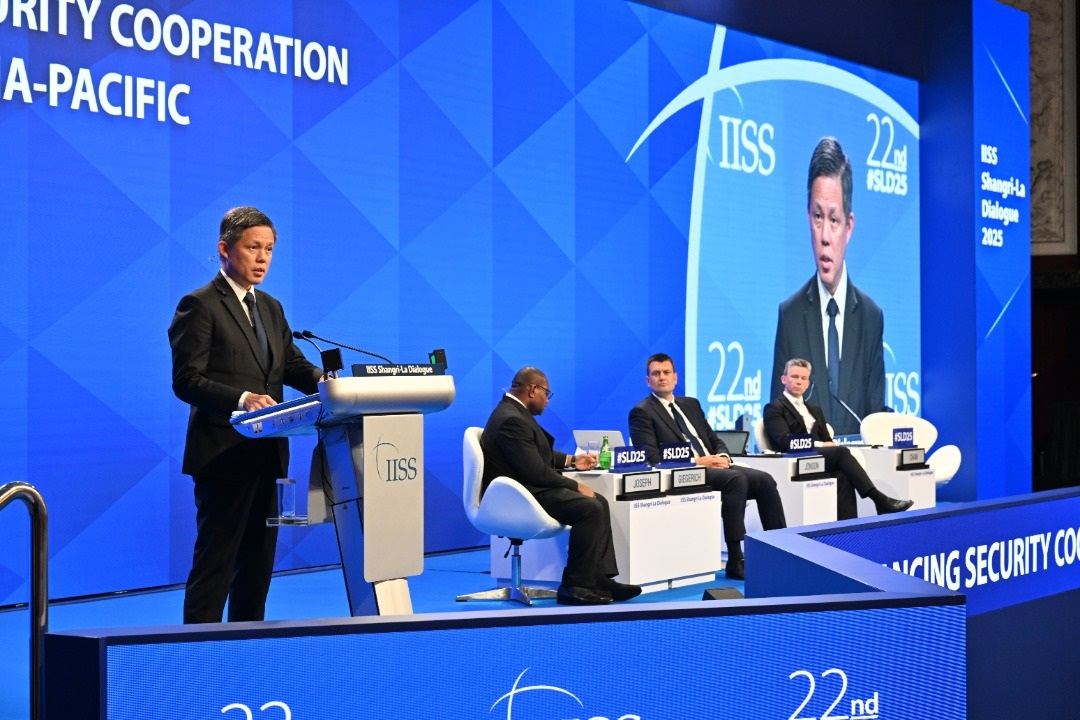DIPLOMACY
A call for peace at Shangri La Dialogue
02 Jun 2024
A repeated call for peace, especially in Asia. This was Minister for Defence Dr Ng Eng Hen's central message at the 21st Shangri La Dialogue (SLD), held from 31 May to 2 Jun.
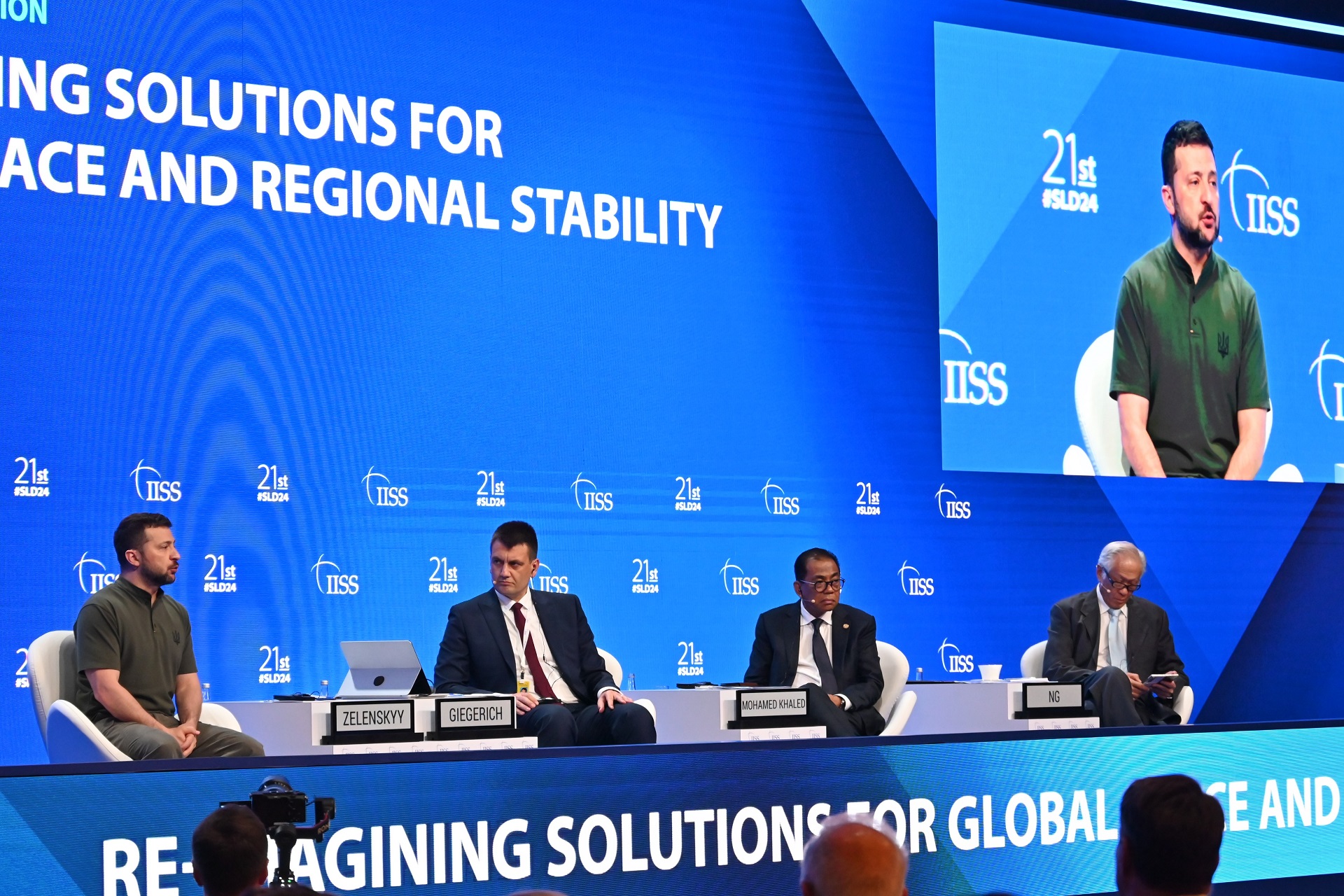
At a plenary session on 2 Jun, he said: "We must avoid a physical conflict in Asia, because we can all agree that neither Asia nor the world can withstand a third geopolitical shock."
Dr Ng was speaking at the annual premiere security summit, which brings together defence ministers and academics from around the globe to discuss key security challenges in the world today.
This year's edition saw the attendance of 49 Ministerial-level delegates and more than 40 senior defence officials from 45 countries.
We take a look at the highlights of the three-day event:
US-China relationship; South China Sea tensions & conflicts in Ukraine and Gaza were hot-button topics at SLD
Hot-button topics like United States (US)-China relations and conflicts in the Middle East dominated discussions.
A recurring theme was that conflicts in Ukraine and the Middle East must not happen in Asia, said Dr Ng in an interview with the media after a roundtable discussion on 1 Jun.
He added that there had been a strengthened resolve to maintain peace in the region: "Because it would really destabilise (global security if there was) a third centre of confrontation, (and also because of) the lessons learnt on the cost of aggression and the consequences of aggression."
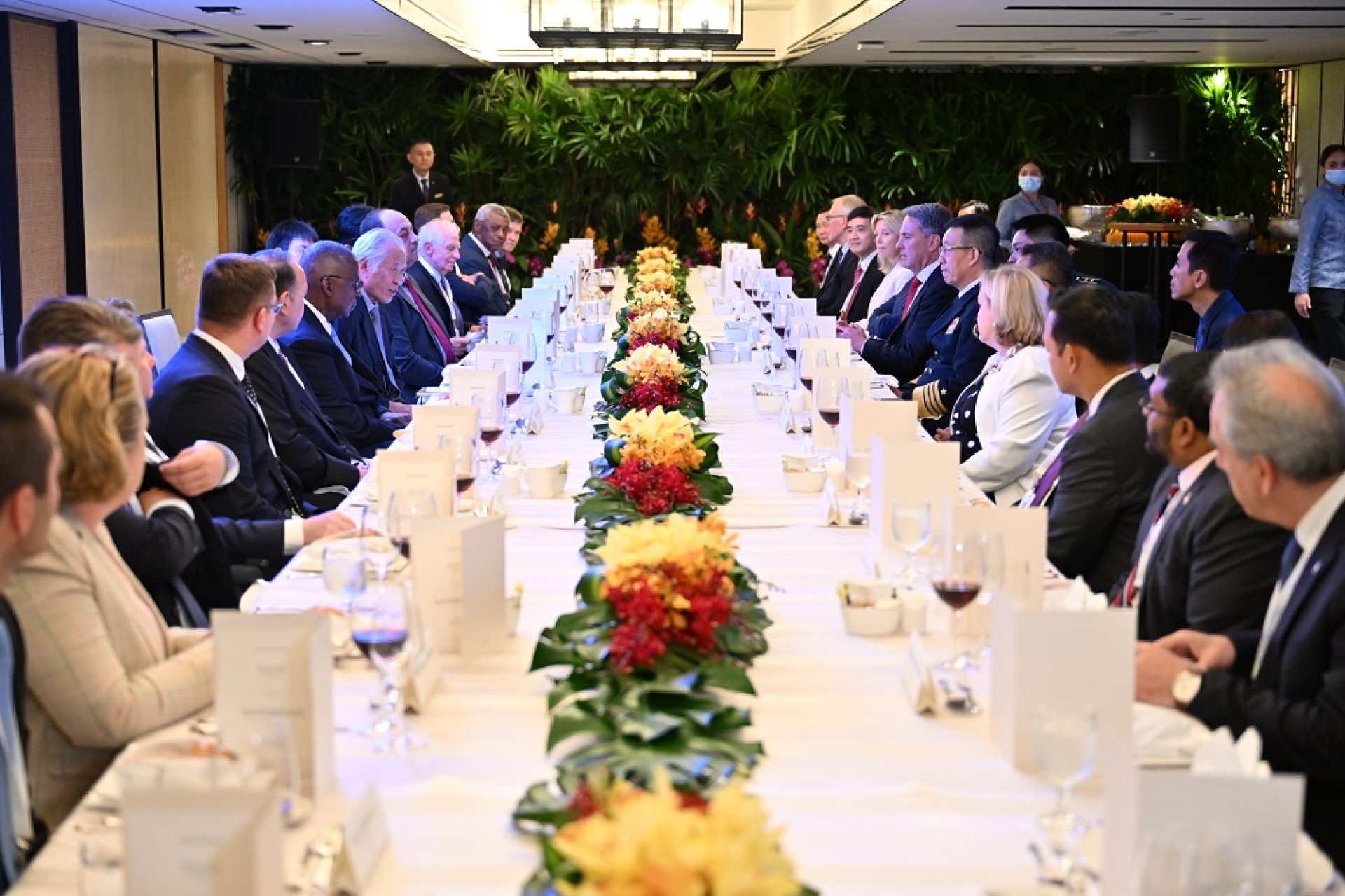
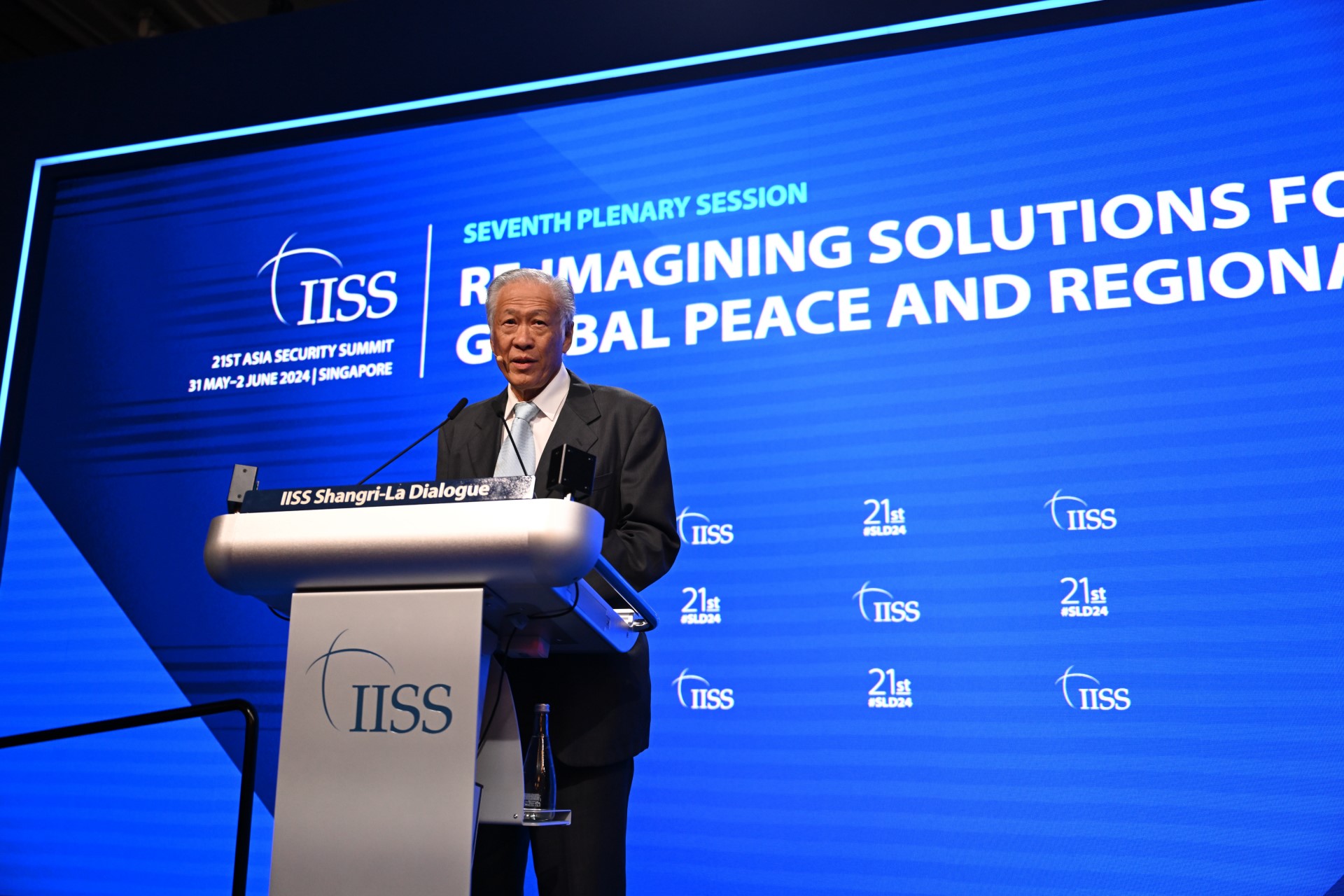
On US-China relations, Dr Ng noted that both countries were "integral to the functioning of a globally connected economy upon which all our well-being depends."
"Our approach is to convince the powers that be, whether big, middle or otherwise, that it's to their collective interest to have a system that protects the rights of large and small powers, and to be inclusive to avoid military alliances, trade blocks… (otherwise) then you revert to pre-World War I configurations," said Dr Ng.
On the tensions in the South China Sea, he said: "There is very little that non-claimant state can do to resolve if the claimant states don't have the political will to find political or peaceful resolutions.
"If there's a message, it's that if countries truly want peace, others can assist. But without their internal desire, you're not going to find it."
Ukrainian President Volodymyr Zelenskyy calls for international support and to strengthen diplomacy
Mr Zelenskyy joined Dr Ng at the SLD's seventh plenary session on 2 Jun, where he reiterated the importance of diplomacy.
"It's often said that brutal force should not dominate the world… Diplomacy should be those caring and strong hands that prevent international disputes from turning into fights, restraining the most aggressive parties," he said.
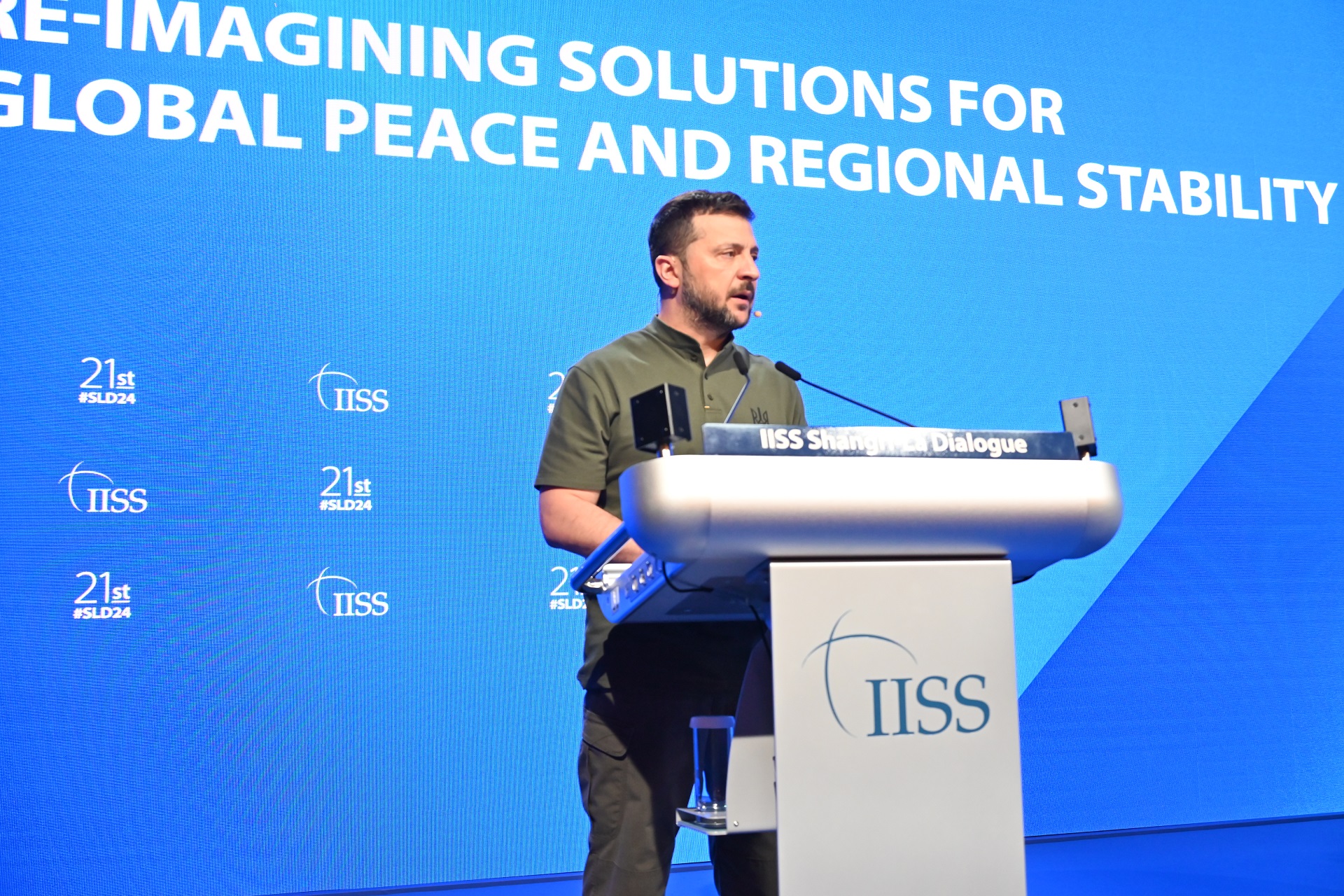
While highlighting instances of failed diplomacy in the world, Mr Zelenskyy acknowledged the key role diplomacy played in helping Ukraine withstand Russia's attacks in the form of "coalitions, from military to humanitarian, formal and informal".
"What brought them together is diplomacy. Diplomacy does work when it truly aims to protect lives. Together with partners, we are defending lives and rules-based world order," he added.
Dr Ng thanked Mr Zelenskyy for his presence at the Dialogue, noting that the president putting "great enough priority to be here in the SLD honours us".
China's new Minister of National Defense made his first visit to Singapore
As part of his introductory visit, Admiral (ADM) Dong Jun visited the Ministry of Defence (MINDEF) and co-chaired the third Singapore-China Defence Ministers' Dialogue with Dr Ng on 31 May.
During the dialogue, both ministers reaffirmed the positive momentum in the bilateral defence relationship, which is demonstrated through regular high-level exchanges, military-to-military interactions, and growing academic exchanges between the defence establishments.
Both sides also expressed support for the conduct of Exercise Cooperation between the two countries' armies, and Exercise Maritime Cooperation between the navies in China this year.
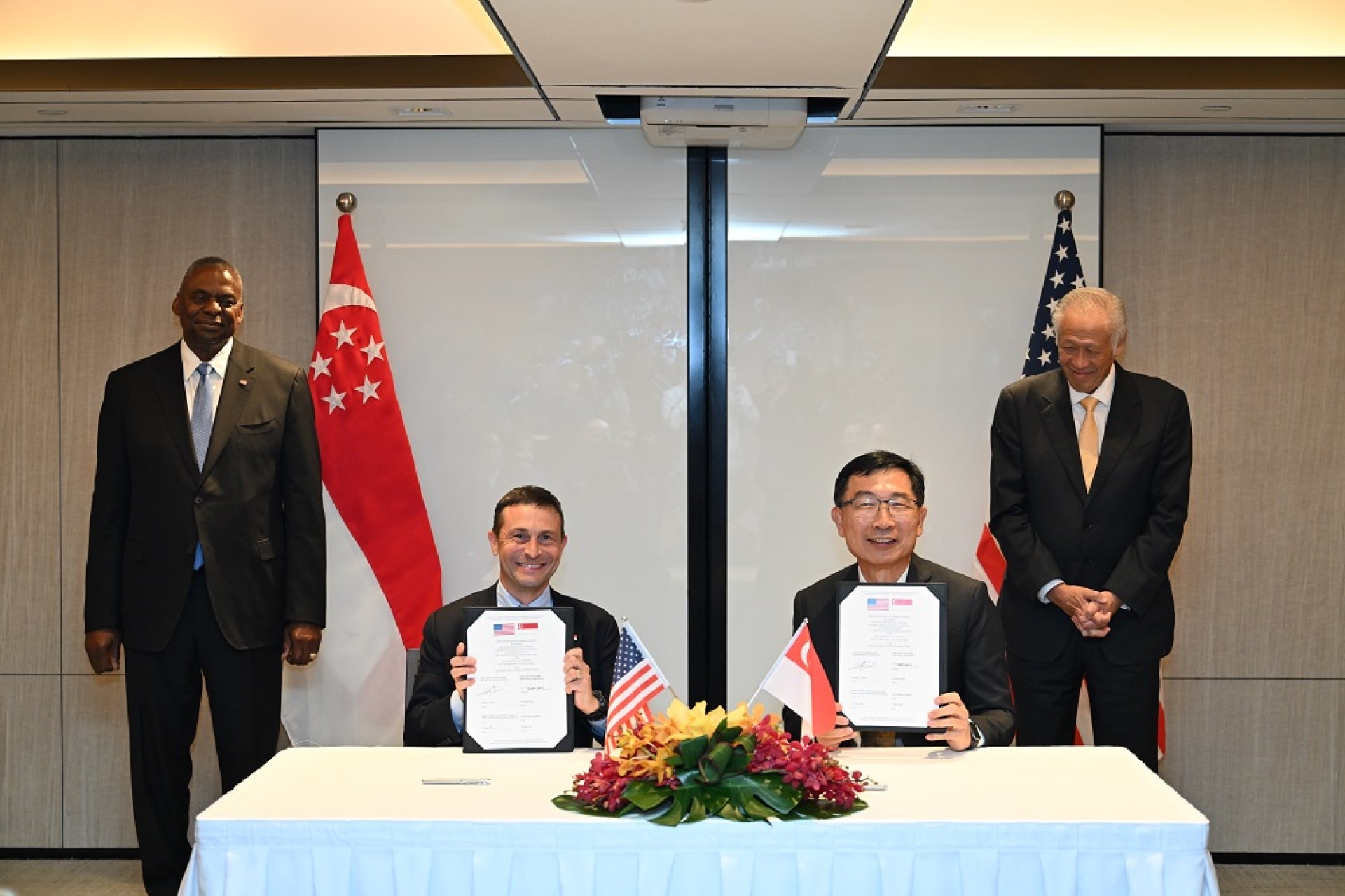
S'pore & US signed MOU for Defence Innovation Cooperation
United States Secretary of Defense Lloyd J. Austin III called on Dr Ng as part of his official visit to Singapore and to attend the SLD.
During the call, Dr Ng and Mr Austin discussed ways to further strengthen bilateral defence cooperation, and reaffirmed the importance of the US' continued engagement in the Asia-Pacific region.
Dr Ng expressed appreciation for their long-standing support for the Singapore Armed Forces' training in the US, as well as access to technology such as the acquisition and operationalisation of the F-35 fighter planes.
Before the call, Dr Ng and Mr Austin witnessed the signing of the MOU by Chief Defence Scientist Tan Peng Yam and Director of the Defense Innovation Unit and Senior Advisor to the Secretary of Defense Douglas A. Beck.
The MOU allows both defence establishments to identify opportunities to leverage commercial dual-use and emerging technologies such as Artificial Intelligence (AI) to solve operational challenges.
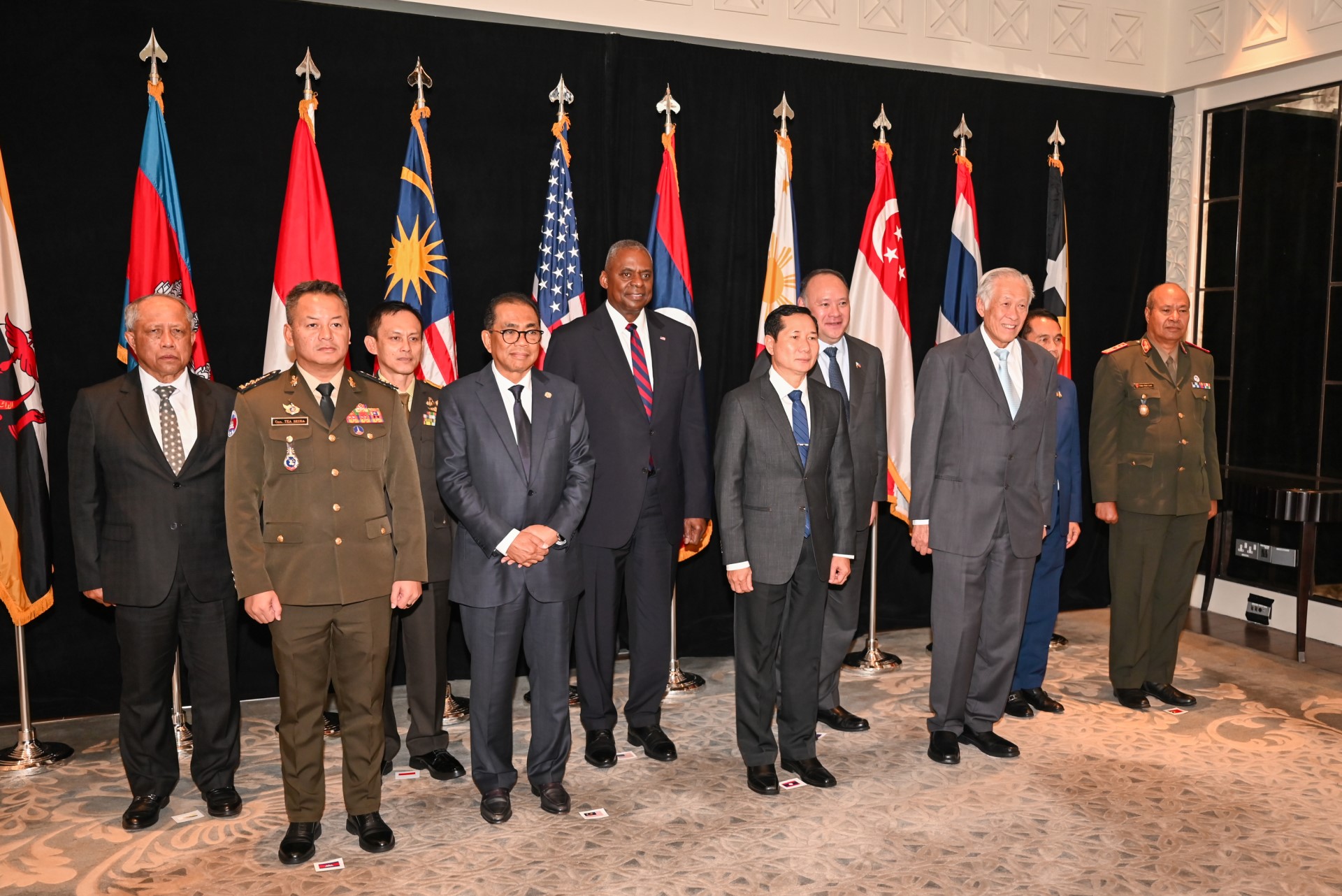
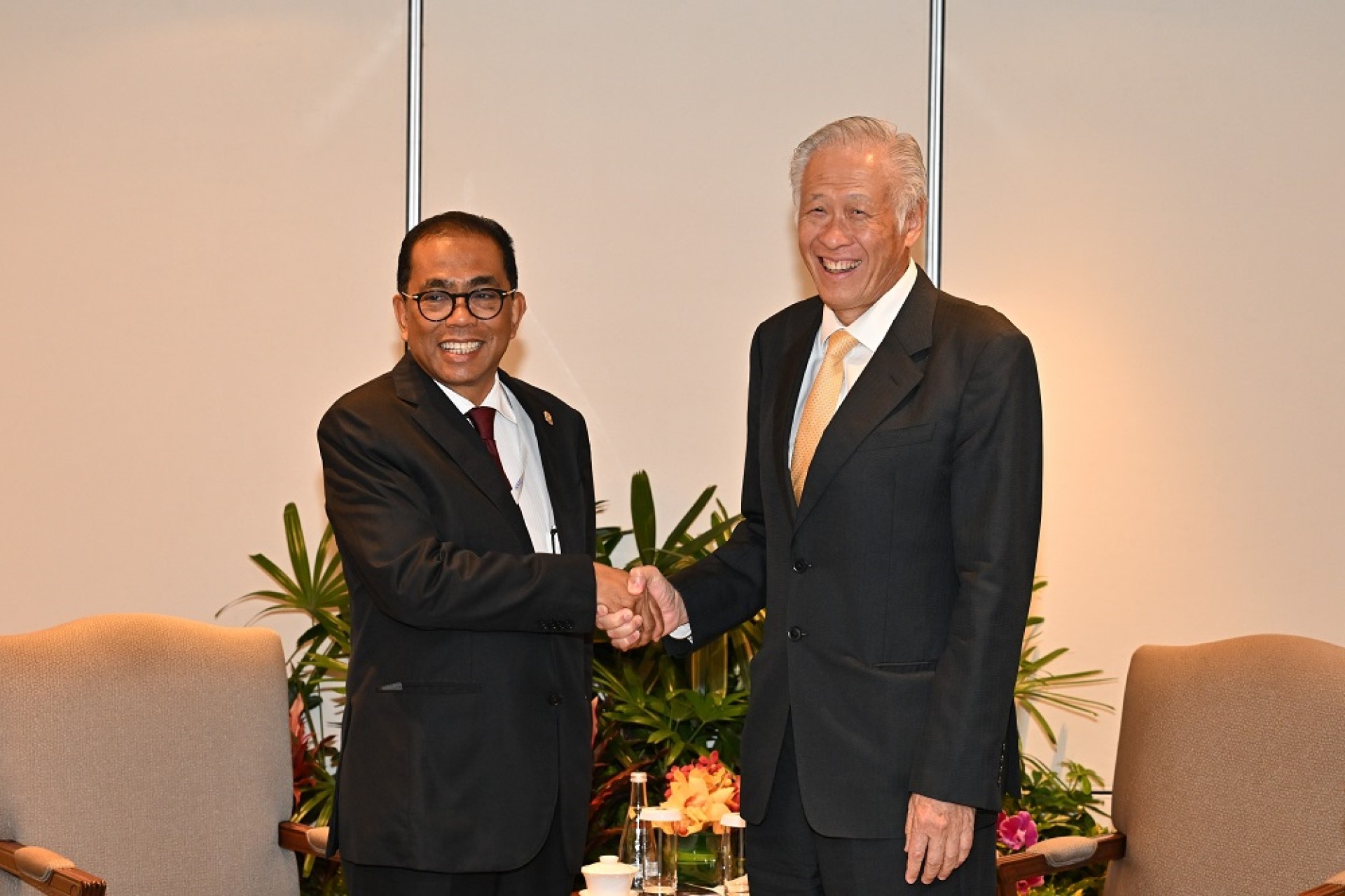
Dr Ng met with counterparts and world leaders; hosted FPDA breakfast
Dr Ng met with many of his counterparts who had arrived for the SLD. They included Malaysian Minister of Defence Dato' Seri Mohamed Khaled Nordin; Indonesian President-Elect and Defence Minister Prabowo Subianto; and Australian Deputy Prime Minister and Minister for Defence Richard Marles.
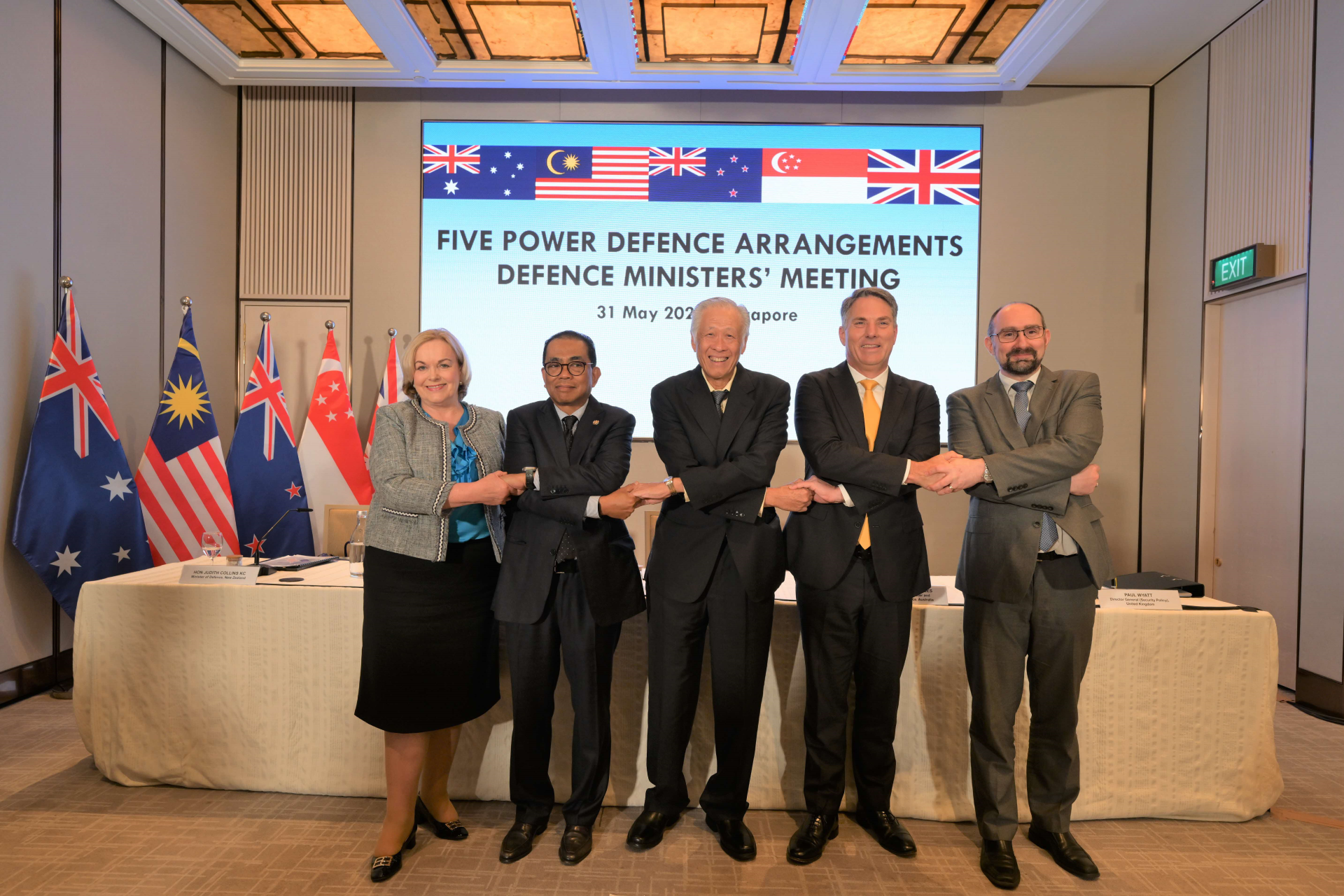
On the sidelines of the SLD, Dr Ng hosted the 12th Five Power Defence Arrangements (FPDA) Defence Ministers' Meeting on 31 May.
The meeting was attended by Australian Deputy Prime Minister and Defence Minister Richard Marles; Malaysian Defence Minister Dato' Seri Mohamed Khaled Nordin; New Zealand (NZ) Defence Minister Judith Collins KC; and the United Kingdom's (UK's) Director General (Security Policy) Paul Wyatt.
At a joint press conference after the meeting, the Ministers and Director General reaffirmed the importance of the FPDA in enhancing regional cooperation, and pledged their support for the FDPA's efforts to build trust and interoperability among the militaries of member-nations.
During the joint press conference, the official FPDA website was also launched. This website seeks to give additional insight to the public on how the FPDA functions as a defensive arrangement aimed at building trust and confidence in the region.
ALSO READ IN DIPLOMACY
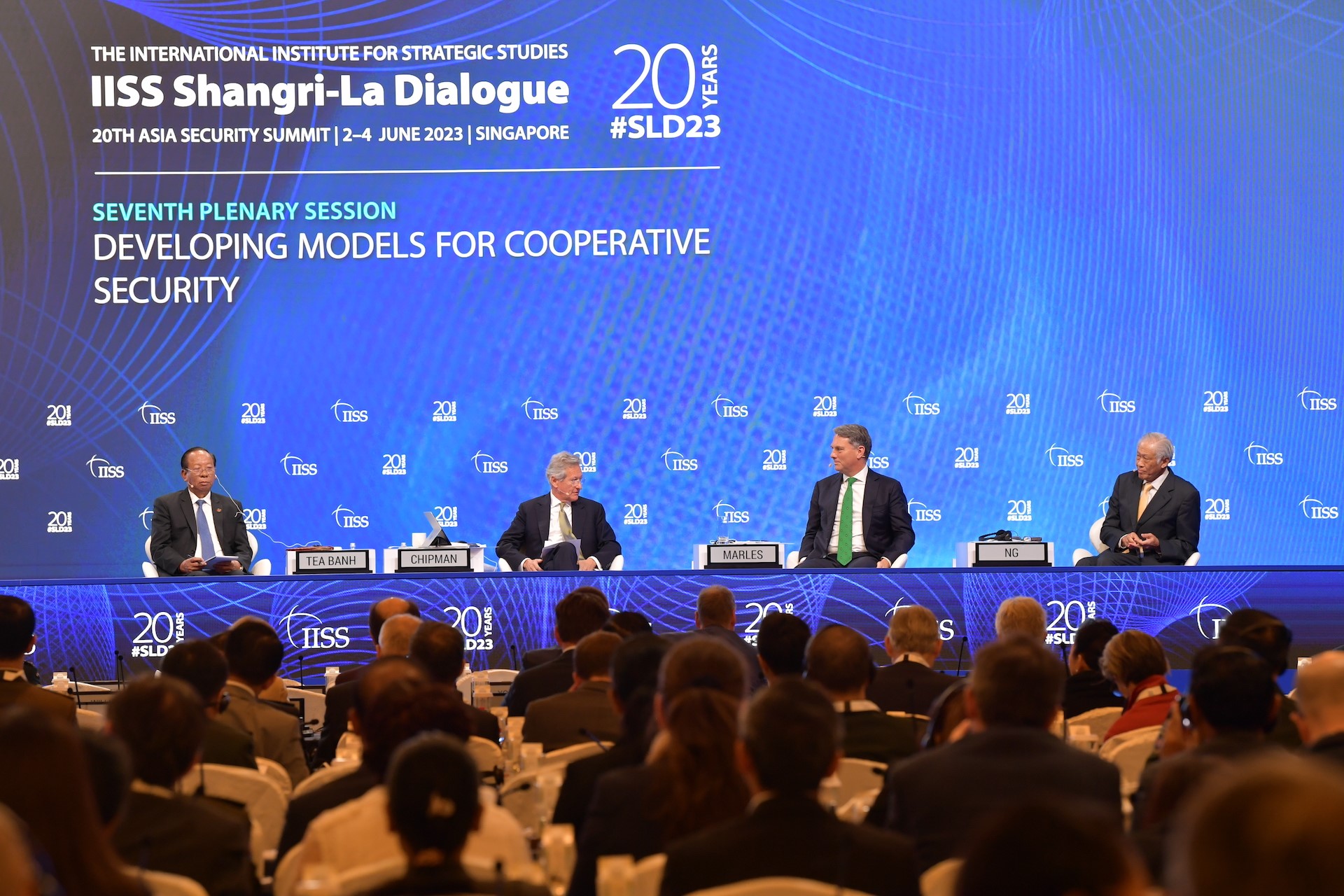
Shangri-La Dialogue sees frank discussion of security issues
04 Jun 2023
The 20th Shangri-La Dialogue, held from 2 to 4 Jun, saw ministers from around the world meet in Singapore to discuss key defence and security issues.
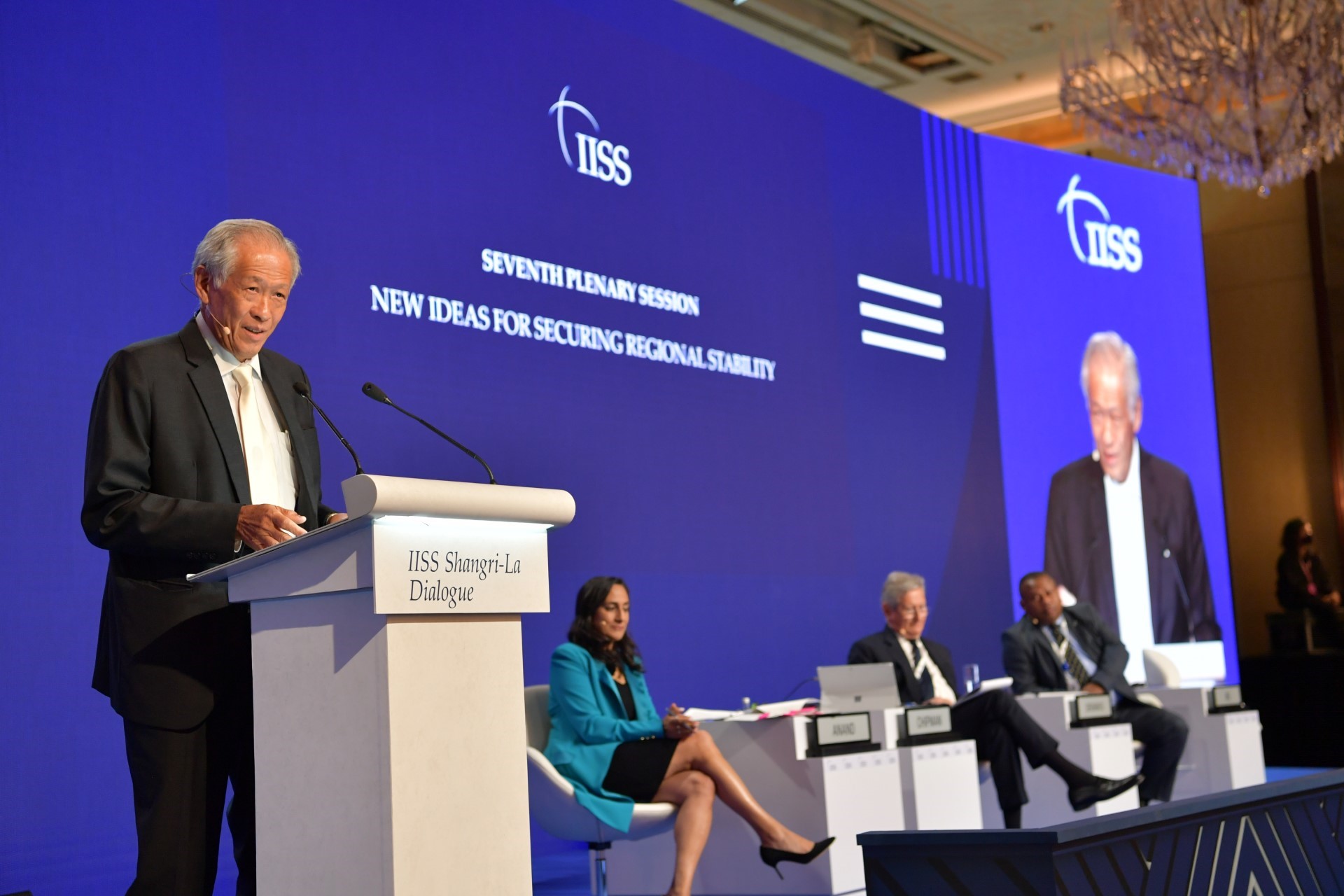
SLD remains valuable platform for crucial discussions: Dr Ng
12 Jun 2022
Minister for Defence Dr Ng Eng Hen spoke on the US-China relationship, the importance of a rules-based order and the role of ASEAN as a regional security platform at the 19th Shangri-La Dialogue (SLD).
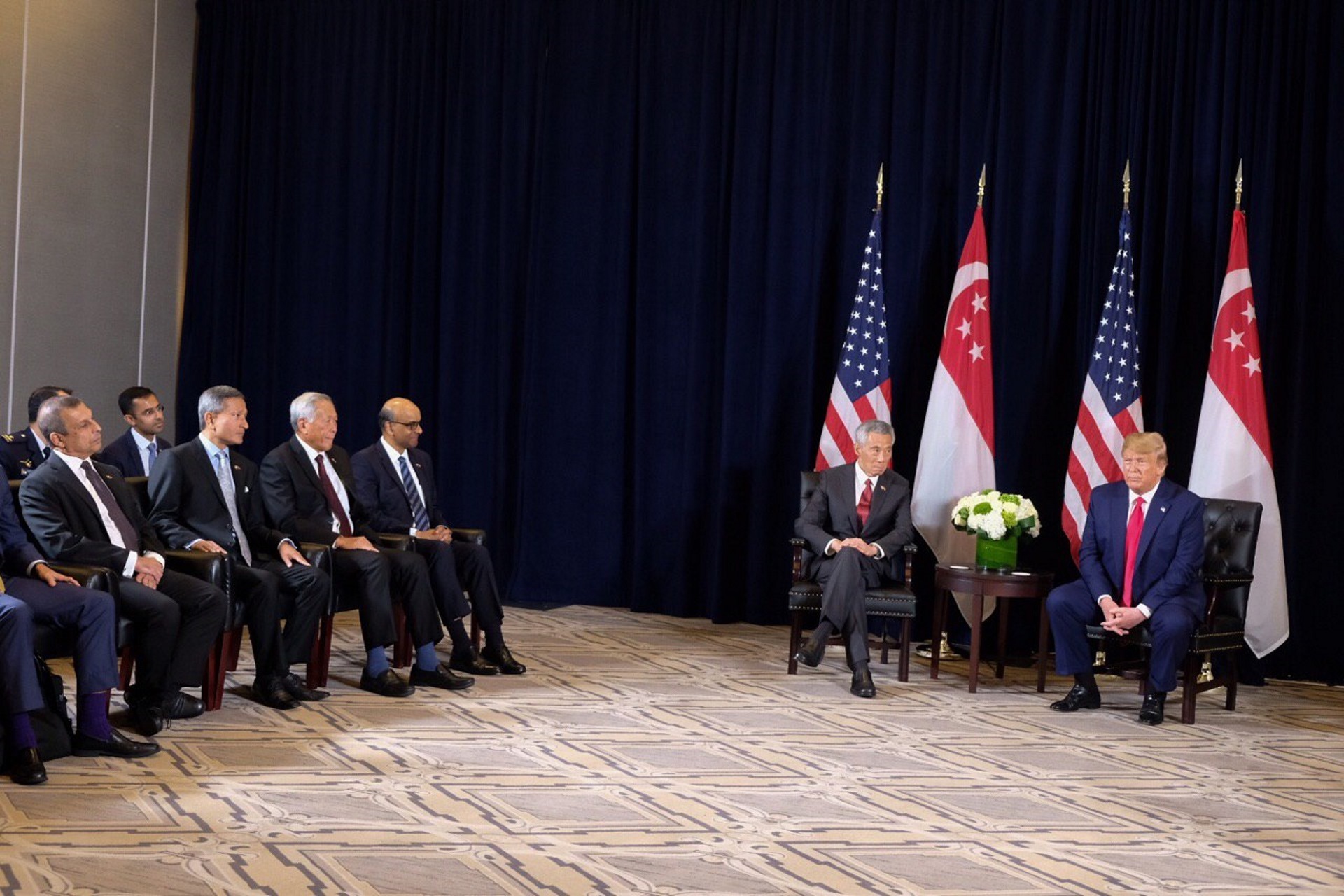
S’pore and US renew defence agreement
25 Sep 2019
Prime Minister Lee Hsien Loong and United States (US) President Donald Trump signed an agreement to renew the 1990 Memorandum of Understanding (MOU) Regarding United States' Use of Facilities in Singapore on 24 Sep.

